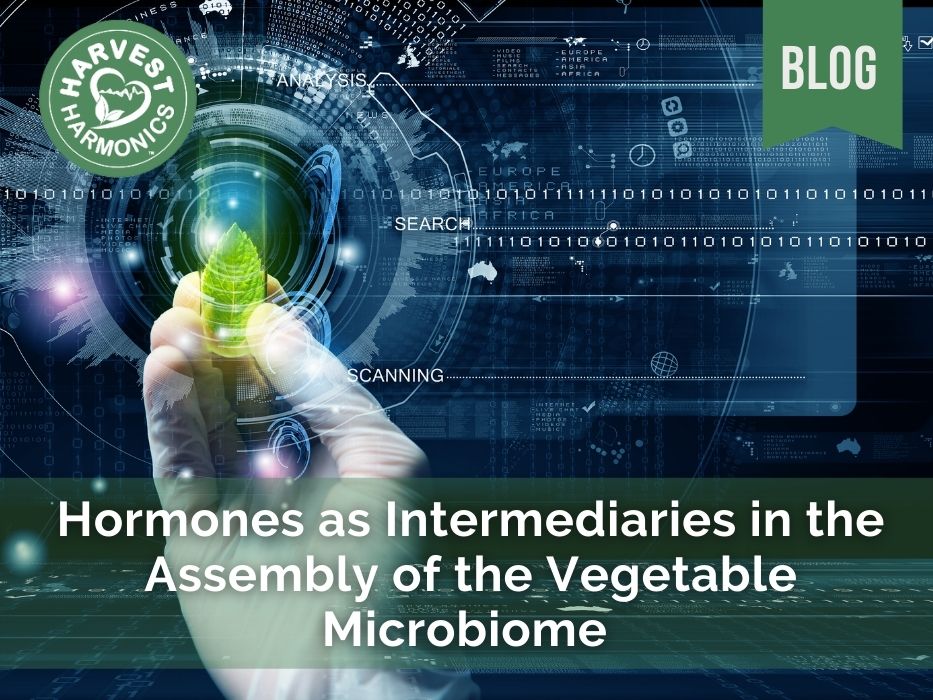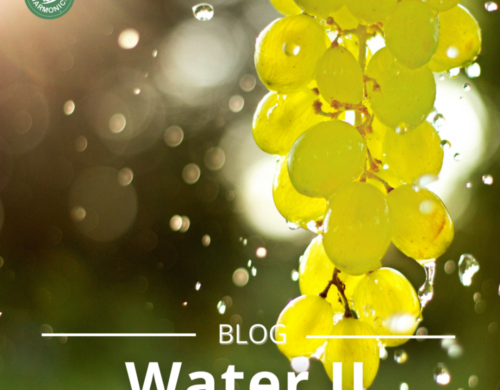Hormones as Intermediaries in the Assembly of the Vegetable Microbiome

Both the interior and exterior of plants are populated by specific microorganisms and often selectively assembled into huge communities, called microbiota. Among these are bacteria and fungi, with neutral, beneficial or pathogenic interactions between them, forming the microbiome.
The adaptable effects of the plant microbiome can be divided into two: Improving the environmental adaptability and fitness of plants through protection against abiotic or biotic stress, as well as promoting the supply of water and nutrients and aiding the development of the plant’s root system, stimulating the growth of the lateral roots and the formation of its hairs, which improve accessibility to water and nutrients.
So, how do plants attract beneficial microbiota? Within colonized areas, plants and their microbial communities strongly influence each other, and various mechanisms have been described about how they carry out this communication. Chemical signaling contributes greatly to antagonistic (antimicrobial metabolites) or mutualistic (probiotics) microbe-microbe interactions. We also find primary and secondary metabolites produced and exuded by plants can selectively attract or repel some members of microbial communities. And vice versa, microbial metabolites can alter the development of plants and their responses to environmental signals.
Plants have developed mechanisms to “shape” such communities, to exploit the microbiomes as a genetic resource, expanding their capacities to cope with changing environmental conditions. For example, certain foliar pathogens promote the secretion of metabolites in the roots to modify the composition of the microbiota, to recruit beneficial microorganisms that activate the defenses against these foliar invaders.
But in all this process of plant-microbiota interactions, plant hormones assume a central role, since they are the chemical messengers involved in important cellular and physiological processes, signaling processes and microbial adaptation to their hosts.
What are the effects of plant hormone signaling on the plant microbiome?
It is necessary to look back at the origin and evolution of plant-microorganism interactions, to understand the hormonal role in the configuration of the microbiome. Terrestrial colonization implied the need to acquire nutrients without a root system. In this process of transition to the terrestrial environment, beneficial symbionts played a very important role. Hormone signaling in early plants and their participation in plant-microorganism interactions positions hormones as key tools in regulating the symbiosis and assembly of the microbiome.
Plants and microorganisms have co-evolved using various strategies to communicate and interact with each other. From a plant perspective, it is a balancing act. Plants invest significant resources, such as nutrients, to create an attractive rhizospheric habitat for microorganisms, which carries the risk of wasting expensive resources on ineffective or even harmful microorganisms. Therefore, it is crucial that plants have selective mechanisms to have some control over access to the resource-rich rhizosphere and the balance of these interactions.
For plants, hormones represent effective mediators to adapt to environmental stimuli and coordinate complex developmental processes. As a kind of common chemical language, hormones have become intermediaries of microorganisms and plants to implement the conditions for the establishment of niches in the rhizosphere and facilitate the adaptation of the specific host.
By enhancing the natural metabolism of plants, the Kyminasi Plant Booster provides the energy the plant needs to produce and utilize these hormones, while still having enough to create a greater quantity and quality of fruits and vegetables.
By Arantza Castro
Press Room

Agricultural Technology for Farmers in India
Harvest HarmonicsTM New Biophysics Agricultural Technology For Farmers In India The Agricultural Biophysics technology, 20…
1

Organic Earth Tech, OETI, Launches One Million Dollar Technology
After hurricanes Maria and Irma, Puertorrican farmers are yet to receive the needed aid to recover. Organic Earth Tech…
0

Produce More From Less
CEO Harvest Harmonics Frank Arlia speaking at Replenish. Earth interview by Tia Kansara – London Climate Action Week. How…
0

Replenish Earth and the Environmental RE Talk Series
Replenish Earth and the environmental RE Talk Series event that reunited the top thinkers in the world Harvest Harmonics…
1
Related Posts
2024 India Just Agriculture Frank’s presentation
https://www.youtube.com/watch?v=g_4vdtXBVsA&ab_channel=HarvestHarmonics The Crop Booster by Kyminasi Plants consists of...


